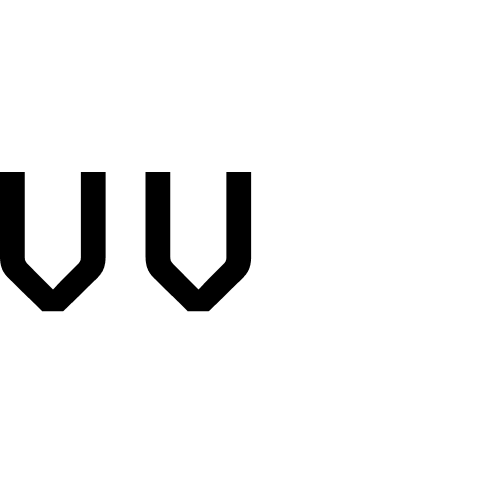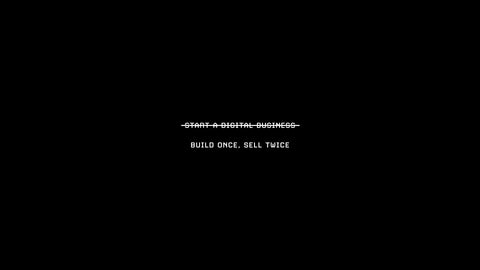What it means:
The things you're naturally good at feel too simple to be valuable, so you ignore them and chase what's hard instead.
Why it's true:
In career:
- You're naturally good at explaining complex things simply
- Feels too easy, so you don't value it
- You chase technical skills that feel more "legitimate"
- Result: you ignore your actual competitive advantage
- Meanwhile, someone who struggles to explain things would pay for your natural ability
In business:
- Ideas come naturally to you, execution is hard
- You dismiss the ideas because they came easy
- You force yourself to be "disciplined" and execute
- Result: you're fighting your nature, underperforming
- You should be the ideas person, partner with an executor
In creativity:
- You can write dialogue naturally
- Feels like cheating because it's not "hard work"
- You try to write complex plot structures instead (harder = more legitimate)
- Result: your dialogue (your strength) goes unused
- Your plot (your weakness) stays mediocre
In relationships:
- You're naturally empathetic and good at listening
- Feels too easy, like anyone could do it
- You try to be logical/strategic instead (seems more valuable)
- Result: you suppress your actual superpower
- People who can't listen would kill for your natural ability
The mechanism:
What comes easy:
- Feels natural
- Requires no effort
- Happens automatically
- Seems "not special"
- Appears illegitimate
- Feels like cheating
What comes hard:
- Feels legitimate
- Requires visible effort
- Looks like "real work"
- Seems special/valuable
- Appears credible
- Feels earned
The trap:
You think: "If it's easy for me, it must be easy for everyone"
Reality: It's easy for you BECAUSE it's your natural advantage
You dismiss it as "not real work" Meanwhile, others struggle with what's effortless for you
Examples of what people dismiss because it's easy:
The person who's naturally funny:
- Thinks: "Anyone can make jokes"
- Reality: Most people can't make a room laugh consistently
- They pursue "serious" work instead
- Ignore that comedy is a rare, valuable skill
The person who's naturally organized:
- Thinks: "Everyone can organize, it's not hard"
- Reality: Most people are drowning in chaos
- They pursue creative work instead (harder for them)
- Ignore that organization is a superpower others lack
The person who's naturally persuasive:
- Thinks: "I'm just talking, it's not real work"
- Reality: Most people can't convince anyone of anything
- They pursue analytical work (seems more legitimate)
- Ignore that persuasion is incredibly valuable
The person who's naturally strategic:
- Thinks: "This is just obvious"
- Reality: Most people can't see patterns or think long-term
- They pursue tactical work (more visible effort)
- Ignore that strategy is rare and highly paid
The person who's naturally good with people:
- Thinks: "I'm just being nice"
- Reality: Most people struggle with human dynamics
- They pursue technical skills (seem more "real")
- Ignore that people skills are the ultimate leverage
Why we avoid what comes easy:
It doesn't feel earned:
- Hard work = legitimate
- Easy work = feels like cheating
- Puritan work ethic: suffering = virtuous
- If it's easy, it can't be valuable
- Must be hard to be "real"
It doesn't look impressive:
- Easy for you = must be easy for everyone
- Can't brag about something that came naturally
- Struggle is the story
- Natural ability has no narrative
- Society celebrates overcoming, not natural gifts
It feels like an unfair advantage:
- Like you're not "earning" it
- Like you didn't work for it
- Guilt around natural ability
- Feels wrong to monetize what's easy
- Should struggle like everyone else
Imposter syndrome:
- "If this is easy, I must not be very good"
- "Anyone could do this"
- "I'm going to be found out"
- The easier it is, the more you doubt it's real
- Expertise doesn't feel like expertise from inside
The counterintuitive truth:
What's hard for you is probably hard for everyone.
- You're competing against others who also struggle
- It's a level playing field
- Harder to differentiate
- More competition
- Lower margins
What's easy for you is probably hard for others.
- You have natural advantage
- Unlevel playing field in your favor
- Easy to differentiate
- Less competition
- Higher margins
You should lean into easy, not hard.
The formula:
What most people do: Avoid what's easy → Chase what's hard → Struggle → Mediocre results
What successful people do: Lean into what's easy → Get great at it → Differentiate → Exceptional results
The pattern:
Stage 1: Denial "This is too easy, it can't be valuable"
Stage 2: Pursuit of hard "I'll work on what's difficult instead"
Stage 3: Struggle "This is really hard, I must be growing"
Stage 4: Mediocrity "I'm working so hard, why aren't I succeeding?"
Stage 5: Realization "Wait, what if my advantage is what comes easy?"
Stage 6: Acceptance "I'll lean into my natural strengths"
Stage 7: Excellence "Oh, this is why it felt easy—I'm actually great at this"
Most people never reach Stage 5.
Applications:
In building a career:
- Don't ignore what comes naturally
- That's your signal
- What's easy for you is rare for others
- Build on natural advantages
- Lean into your unfair advantage
In starting a business:
- Don't build what's hard for you
- Build what's easy for you but hard for others
- Your "easy" is their pain point
- Your solution should feel obvious TO YOU
- If it feels like cheating, you're probably onto something
In choosing what to work on:
- Notice what people thank you for
- Notice what people ask you about
- Notice what you do that surprises others
- Notice what feels effortless but gets big reactions
- That's your gold mine
In developing expertise:
- Don't force yourself into areas of weakness
- Double down on areas of strength
- What comes easy can become mastery faster
- Easier to get to 10,000 hours if it's enjoyable
- Natural ability + effort = unstoppable
The signals that you're ignoring your easy:
- People ask you how you did something
- You think "I just did it, no big deal"
- They seem impressed; you're confused why
- You say "anyone could do this"
- They say "no, they really couldn't"
That's your signal.
The test:
What do you do that:
- Feels effortless to you
- Others struggle with
- People compliment you on
- You dismiss as "not special"
- You could do for hours without fatigue
That's what you should build your life around.
The resistance:
"But if I only do what's easy, I won't grow"
Counter:
- Easy doesn't mean no depth
- Easy means natural access to mastery
- You can still grow within your natural domain
- Mastery hides in repetition of what comes easy
- The easy thing can become extraordinary
The examples:
Michael Jordan:
- Basketball came easier to him than to others
- He didn't quit basketball to do something "harder"
- He leaned into easy, got to mastery faster
- Result: GOAT
Comedians:
- Being funny comes easier to them
- They don't quit comedy to become engineers (harder)
- They lean into natural ability
- Result: successful comedy career
Writers:
- Writing comes easier to them than to others
- They don't quit writing to become developers
- They lean into it
- Result: published books
The ultimate truth:
Your competitive advantage is what others think is hard but you think is easy.
That gap is where the money is. That gap is where the impact is. That gap is where your career should be.
It's hard to lean into what comes easy.
Because easy feels illegitimate. Because easy feels like cheating. Because easy doesn't feel like work.
But easy is your advantage. Easy is your edge. Easy is your signal.
Lean into easy. It's the hardest thing to do. And the smartest.








